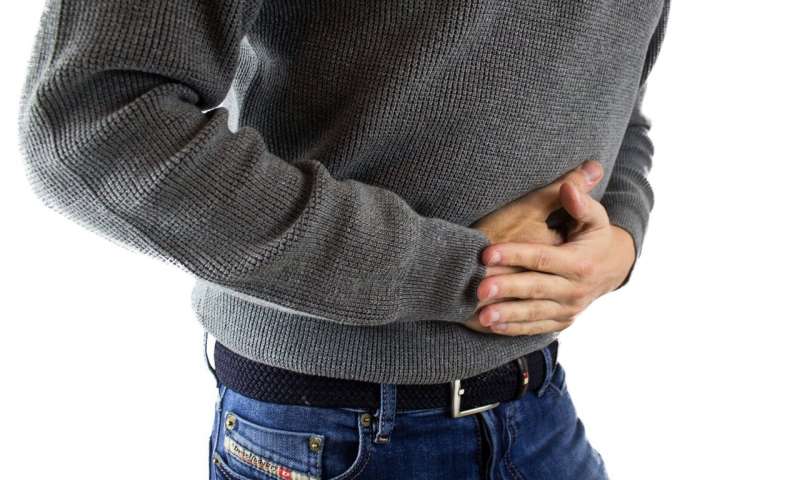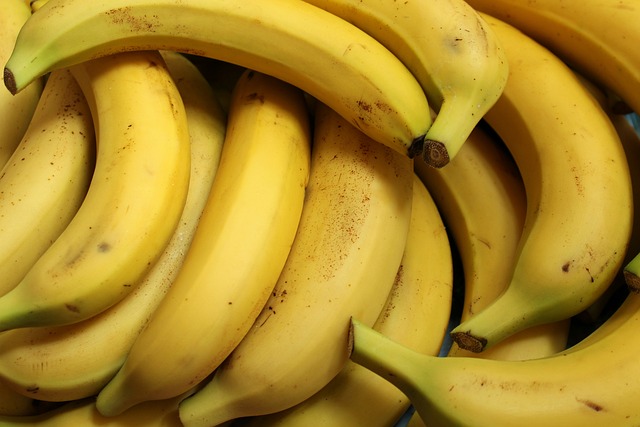What is the relationship of potassium and diarrhea? Is it a cause?.. a cure? Let's find out...
Potassium... it's one of the most important minerals we get in our diets and not getting the right amount could kill us... literally... imbalances of potassium in the blood are linked to, at worst, heart attacks.
But the point here isn't to scare you. This is extremely rare.
The point is that we all need potassium and it is incredibly important, but hardly any of us get enough. In fact, only about 2% of Americans get the recommended daily amount of 3,500mg to 4,700mg, which means that a whopping 98% of us need more in our diets.
It's found in every cell in the body and functions as an electrolyte that helps generate an electrical charge. This helps keep the heart beating steady, muscles contracting when called upon, and it even helps keep the body's water levels balanced, among many other important functions.
You can thank all of the processed foods that are sold in American supermarkets for their being 98% of us not getting enough. Various fruits and vegetables are what provide omnivores like us with natural potassium, but how many of us actually get enough of these foods? Obviously not many.
This then leads many of us on a short journey to the drugstore to pick up some potassium supplements, which then potentially cause the unwanted side effect of diarrhea for some of the more unlucky individuals out there.
Potassium as a Cause of Diarrhea

WebMD states that potassium supplemented orally is "likely safe" when taken in amounts up to 100 mEq, but can cause an upset stomach, nausea, diarrhea, etc. for some people... although unlikely.
RXList lists diarrhea as one of the most common adverse side effects of the popular Klor-Con (brand-name for potassium chloride) tablets which are commonly supplemented by those with a deficiency in this mineral--and LiveStrong also states that diarrhea and abdominal cramping are very common when it comes to side effects. Another potential side-effect of the drug tingling in the hands/feet.
Some sources claim that the diarrhea is due to irritation of the GI tract. When the inside lining of the intestines becomes irritated it can trigger a reaction where the muscles in the intestines squeeze too hard, making the digested food move faster than normal and causing gas/diarrhea.
The Conundrum
For the unfortunate few that develop diarrhea as a result of taking potassium supplements it may seem like all hope is lost.
There is a good chance you are supplementing potassium due to loss of fluids from diarrhea in the first place--loss of fluids from diarrhea, vomiting, excess sweating, etc. are common examples that lead to low levels of potassium.
So you could be taking potassium because of diarrhea... but then taking the potassium could lead to more diarrhea.
What should you do?
If you do develop diarrhea from taking potassium supplements then it is suggested that you try taking them with meals, rather than on an empty stomach. Spreading out your supplementation throughout the day is also said to help.
It is also a good idea to try to get more potassium from natural sources instead of resorting to synthetic supplements, which we'll discuss in a minute.
Risk Factors
If you are going to take potassium supplements you should always ask your doctor beforehand if you have a health condition.
Oral supplements are known to stir up problems for those who have gastroesophageal reflux disease, and IBS.
Hypokalemia and Hyperkalemia
You want the body to maintain a specific amount of potassium in the blood stream, anywhere from 3.6 - 5.2 mmol/L (source: Healthline). This obviously isn't going to be possible if you aren't getting enough in your diet, but if you are eating too much then your body will filter out the excess--or should filter out the excess.
Hypokalemia is diagnosed when blood-potassium levels are below 3.6 mmol/L... and this is when you don't have enough potassium. Common causes are loss of fluid from vomiting, diarrhea, or even excess sweating--which is why you often see athletes consuming bananas after training to replenish potassium levels and why Gatorade often has added electrolytes.
Certain drugs can also cause an increased loss of potassium, such as prednisone.
Constipation is actually a common side effect of not getting enough potassium due to the smooth muscle of the intestines not functioning as it should. Other common side effects include cramps, muscle weakness, myalgia and tremors.
Hyperkalemia, or too much potassium, is often related to the kidneys and includes kidney failure and kidney disease. This is diagnosed when levels in the blood are higher than 5.2 mmol/L.
For people without kidney problems eating a lot of bananas and other foods high in potassium likely won't be a problem, but those who don't have healthy kidneys will have to keep a closer eye on their consumption.
The kidneys are responsible for filtering the blood and when they aren't functioning properly this can lead to a buildup of potassium in the bloodstream to levels that are considered too high, even when eating a diet that isn't considered to be high in the mineral. In these cases the kidneys simply cannot filter out the excess.
The saying of how eating more than six bananas at once can kill you is potentially true.
But what does this have to do with diarrhea?
Well, this condition can potentially stimulate intestinal motility and lead to watery diarrhea, as it likely did for 4 patients admitted to the hospital with hyperkalemia and watery diarrhea, published in the American Journal of Kidney Diseases.
However, this side effect seems to be rare and not talked about all that much.
Getting Potassium Naturally

If you have kidney problems or other conditions that may effect potassium levels then you need to talk with your doctor. But as for the majority of people potassium levels can be healthily maintained naturally.
Foods that naturally contain the mineral include:
- 1 medium-sized banana contains about 422mg
- 1 cup of sliced avocado has 708mg
- 1 cup of frozen spinach has 540mg
- A tablespoon of boiled lima beans has 59mg
- A single prune contains about 70mg
- 1/2 cup of broccoli has 139mg
- A medium sized potato provides 897mg
And there are plenty of other good, natural sources. Sweet potatoes, mushrooms, cucumbers, zucchini, pumpkins, oranges, and a variety of leafy greens also provide good levels of potassium.
Many fruits are also good sources of soluble fiber, which can help absorb water and firm up loose stool, which is why bananas and oranges are on our list of fruits that help with diarrhea--and both have good levels of potassium.
Remember, you are shooting for about 3,500mg - 4,700mg per day.
The Takeaway
- Potassium is an extremely important mineral that most people don't get enough of.
- Potassium supplementation can cause diarrhea.
- Potential solutions are to take potassium supplements with food and in lesser amounts more frequently throughout the day--or to get more potassium through natural sources.
- Diarrhea and loss of fluids in general are often causes of hypokalemia (potassium deficiency)
- Hyperkalemia (to much potassium) can potentially lead to diarrhea.
- Natural potassium sources such as bananas, avocados, spinach, broccoli, etc. are often recommended and sometimes work best.
Recommended: Foods to eat and to avoid when you have diarrhea
Please leave any comments/questions below. We like feedback from our readers 🙂


Thank you. I battle low potassium constantly. Appreciated the article.
My mom says and is running to bathroom what can I do to help her
Reducing sodium in the diet because of high blood pressure caused me to try potassium chloride instead of table salt. After the switch I found myself confronted with constant diarrhea. You can’t win!!!
my wife has diarrhea very bad and is taking chemotherapy and has problems with low potassium levels and has to keep taking klocom potassium supplements. we have been blaming her diarrhea on these two chemo pills as she takes them with her 800 mg potassium and 800 mg mag after reading the above, we are going to change how she takes her pills and hopes this helps her with the diarrhea . thank you